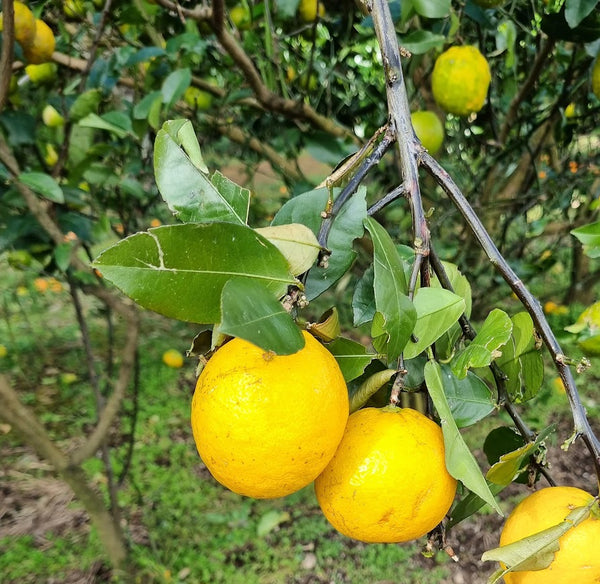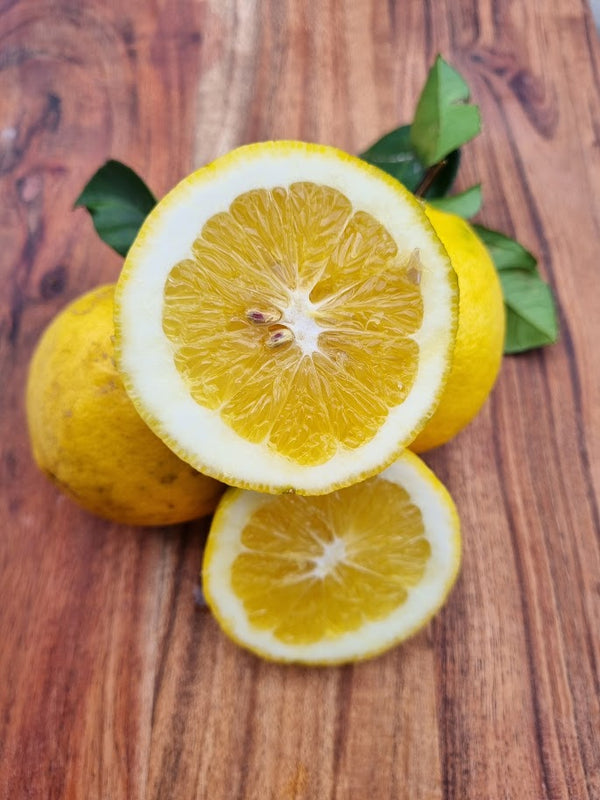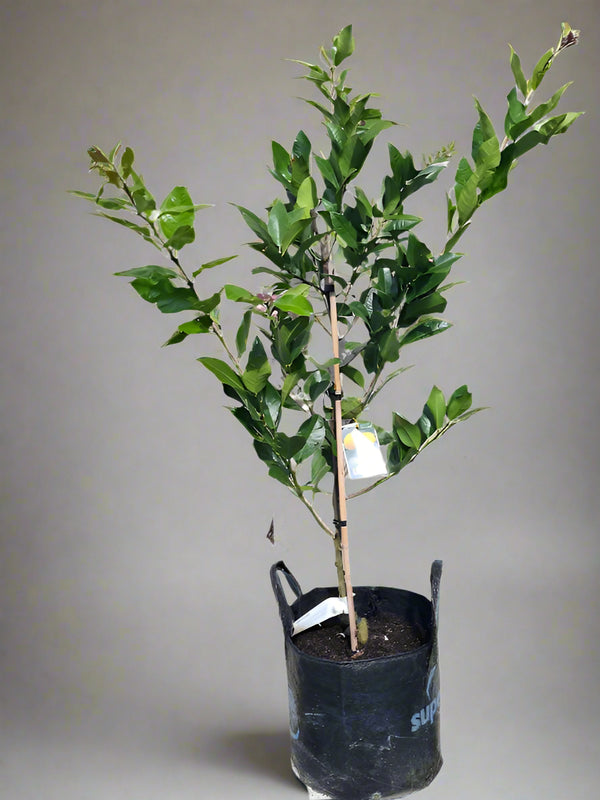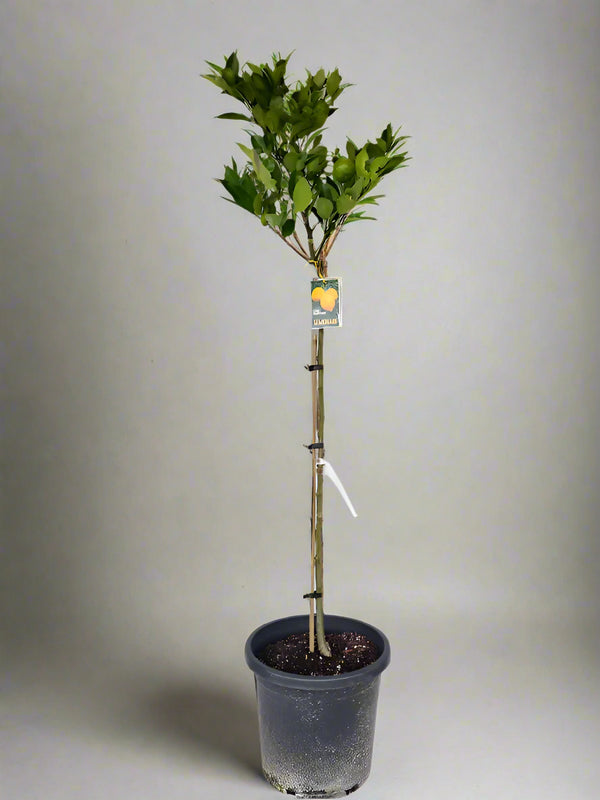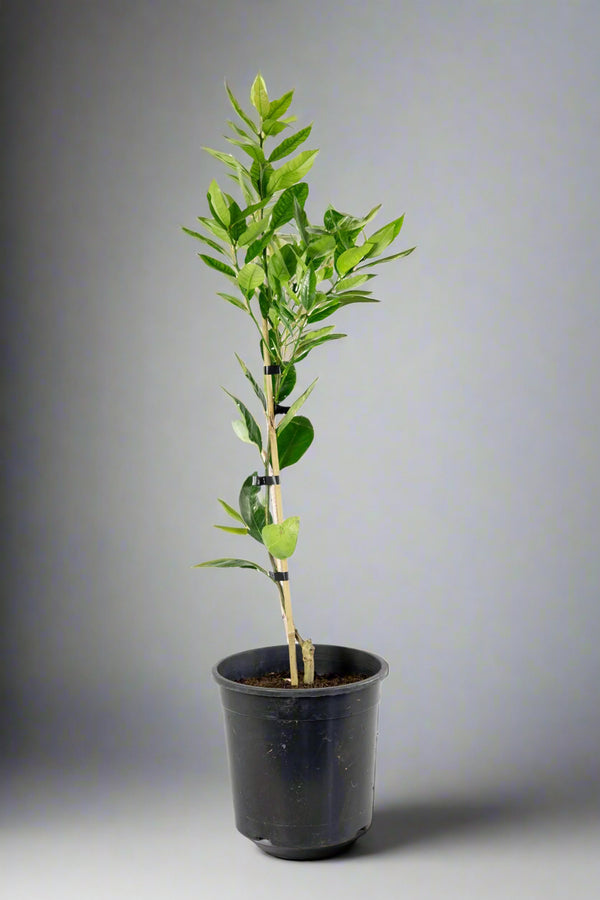
Lemonade Lemon Tree
Tax included
Shipping calculated at checkout
Please note: OurEstablished Range, Medium Standard Range (14L pot), andTall Standard Range trees are available for pickup only, as their size exceeds standard courier limits.
Originating in NZ, the Lemonade lemon tree is a mandarin-lemon hybrid. The lemonade tree is named after its fruit, which tastes like lemonade, it has a mild sweet lemon flavour. The lemonade tree can be found widely in garden centres in the USA and some Australian and European garden centres.
The fruit of the lemonade tree is yellow and round, and it is a similar size to a lemon. The skin of the fruit is thin and smooth, and the flesh is juicy and sweet.
Lemonade trees are relatively easy to grow and care for. Plant in a warm, sunny well drained position. They should be watered regularly, especially during hot weather. Lemonade trees can be grown in containers, but they will need to be repotted as they grow or have their roots trimmed and branches pruned to maintain size.
|
Names |
Citrus limon x reticulata |
|
Origin |
New Zealand |
|
Mature Size |
2-3m |
|
Foliage |
Dark green when mature, slight burgundy colour on new leaves. |
|
Soil |
Free draining rich soil. |
|
Position |
Choose a sunny location. Lemonade trees need plenty of sunlight to thrive. Plant in a location that receives at least 6-8 hours of direct sunlight per day. Lemonade trees are not frost-tolerant, so they may need to be protected from frost if you live in an area with cold winters. You can cover the tree with a frost blanket or bring it indoors |
|
Flavour |
Delicious, sweet fruit that tastes like lemonade. Juicy |
|
Fruiting |
July - August Lemonade is segmented and easy to peel. Lemonades are typically ready to harvest in the winter. The fruit is ripe when it is yellow and has a slightly soft skin. To harvest, simply cut the fruit from the tree with a sharp knife. |
|
Fruit Uses |
The fruit is delicious and can be eaten fresh or juiced. Add to lunchboxes for a refreshing snack, jazz up salads or fruit platters. Make drinks, add juice to marinades for chicken or fish, use lemonade zest in baking recipes. |

